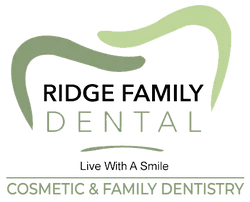Our Ridge Family Dental team believes in fostering a partnership with our patients. This method helps our patients achieve optimal oral health as well as learn about their oral health. One of the major tenets of our practice is patient education. We think that a well-informed patient is one that can become an active participant in their health.
As you embark on your dental care journey with us, we want to address some common questions that patients often have. It is not uncommon to have questions about dental care. Therefore, we are here to provide you with answers. If you have any additional questions or specific concerns, do not hesitate to call our office. We also have more information on patient services.

How often should I visit the dentist for a check-up?
Visiting the dentist is vital to care for your oral health. Typically, we recommend coming for a check-up every six months. However, the frequency may vary based on your individual needs. Some patients may benefit from more frequent visits. This is especially true for patients with a history of dental issues or those undergoing specific treatments. Regular check-ups allow us to detect and address problems early. As a result, this can help prevent more significant issues.
Is flossing really necessary?
While flossing may seem mundane and a hassle, it is a key component of your oral care routine. Beyond removing debris and plaque between teeth, it helps to prevent gum disease and cavities. You should floss at least once a day, making sure to reach all areas between your teeth and along the gum line.
What should I do if I have a toothache?
Toothaches can result from various issues, including cavities, infections, or gum disease. For temporary relief, you can rinse your mouth with warm water and use over-the-counter pain relievers. You should also floss gently to remove any trapped debris and schedule an appointment promptly. Ignoring a toothache can lead to more severe problems. So, early intervention is crucial and ideal.
Can I prevent cavities with a good diet?
A balanced diet can play a big role in preventing cavities. However, your oral care routine and genetics can influence whether you develop tooth decay. As a result, you should limit sugary and acidic foods and drinks. This is because they can lead to tooth decay. You can also make sure that your diet includes calcium-rich foods for strong teeth.
What is the best toothbrush to use?
Your toothbrush is not just a medium to carry toothpaste. It is a crucial tool in your oral hygiene routine. You must make sure that you choose the right toothbrush to have effective oral care. When looking for a toothbrush, look for one with soft bristles. This can help avoid damaging your enamel and gums. Whether you prefer a manual or electric toothbrush depends on your personal preference and how well you can maneuver the brush to reach all surfaces.
Is it normal for my gums to bleed when I brush?
While common, bleeding gums can be a sign of gingivitis. Each day, you should gently floss and brush your teeth. Make sure that you pay extra attention to your gum line. If the bleeding persists, you need to schedule a visit with us for a complete examination.
